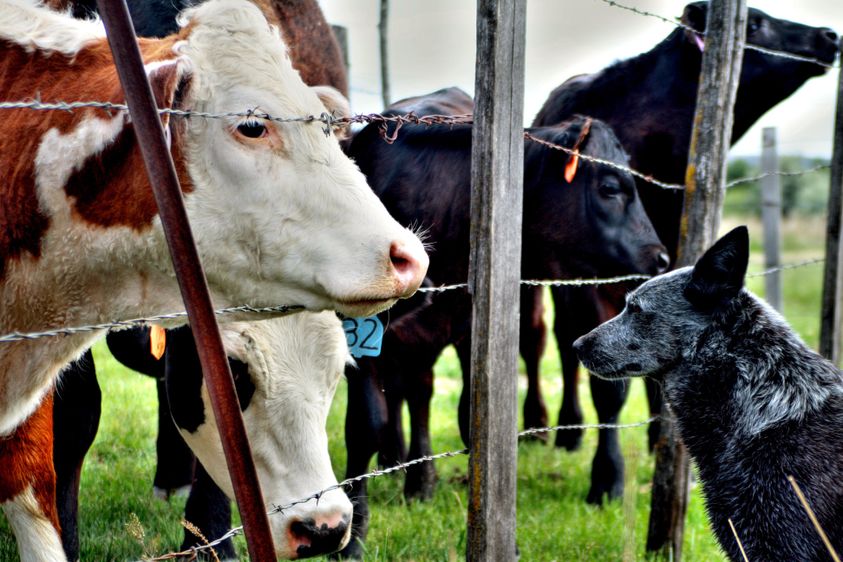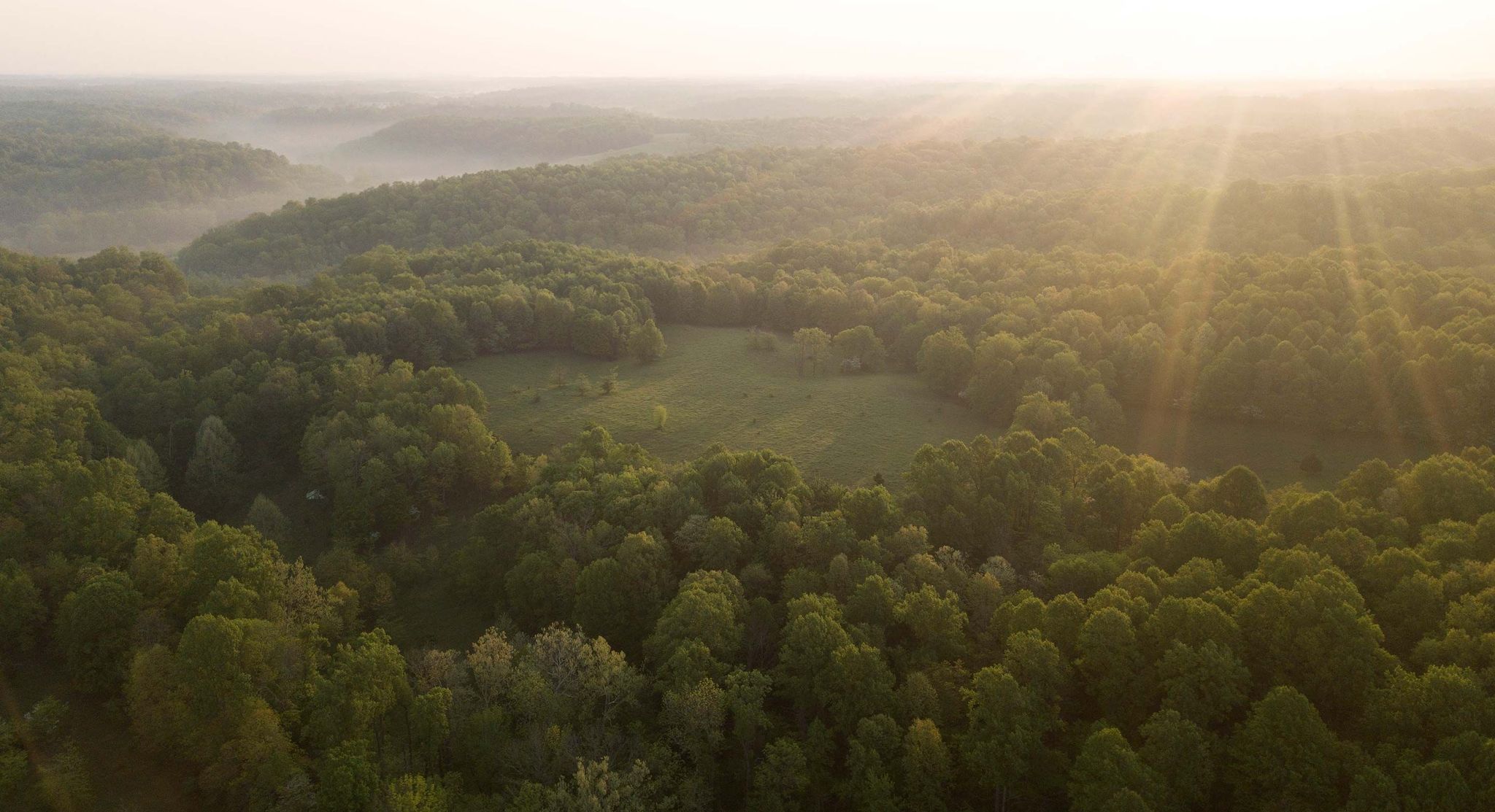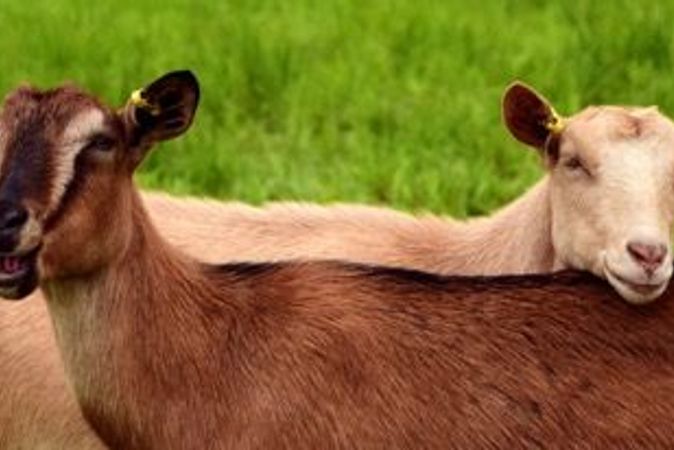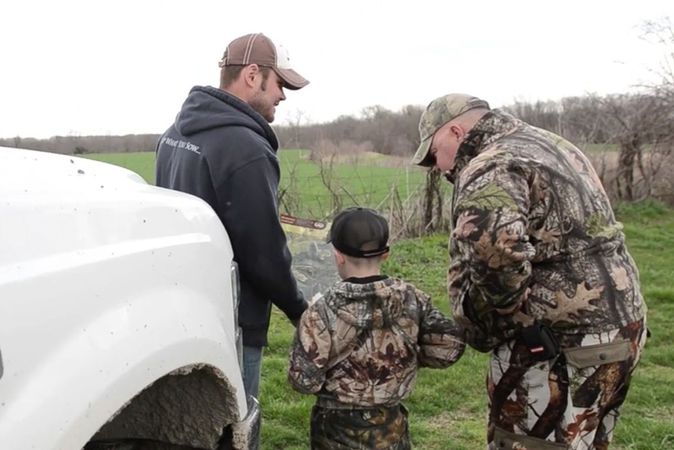Dogs play a crucial role in a farmer’s life. From assisting with herding to providing companionship and protection, they wear many collars. It may seem like these pups know how to do their job from the time they are born, but that is far from the truth. While certain breeds have instincts that will help them out on the farm, raising the perfect farm dog takes lots of time and training early on. Here is some advice for raising a working farm dog.
Meet the Livestock
The primary age to bond pups to the species they will protect or herd is between eight and 16 weeks. Start out with the gentler livestock such as cows or goats to ensure they will not injure your pup. First, introduce them to each other with supervision while correcting the pup’s behavior by showing it not to bite or roughhouse with the livestock. After, give the dog and livestock some quiet time alone to get them used to each other.
As the pup grows and gains confidence, you can leave them alone with the animals. This will allow them to familiarize with one another. This time is usually spent unsupervised, however, it would be best to check in regularly to make sure things are running smoothly.
Teaching What You Expect
Puppies are similar to young children when it comes to their attention spans. Something as small as a person talking can divert their attention away from their animals. This is the ideal time to teach them what you want from them as a farm dog. If your puppy strays away from their livestock area, bring them back while reinforcing this is what you want them to do. Teach them verbal commands such as “go to your goats.” We know this is no easy task and can be frustrating. It takes time and consistency to train a puppy. Just be patient.
Expose to a Variety of Situations
There’s more to farm dog life than herding or protecting livestock. It’s important to introduce your pup to a variety of things on the farm. Rides in the truck or tractor, learning to walk on a leash and getting accustomed to crate training are a few things they should know. Tour buildings or stock trailers on the property to allow the little fellow to get a feel for what’s around. Show off your farm community by introducing other farm animals.
It’s is important that you teach your pup the dangers of the farm. Instruct them to avoid getting in the way of farm equipment and vehicles when they are being used by teaching the command “stay.” Reward with a treat to help them remember the command. Ensuring you have taught your pup safety will allow you to have peace of mind and not worry about whether or not they are in the way.
Make a Feeding Routine
Feeding routines are important in day-to-day farm life. Feed your pup near the livestock, not at your house. Try to establish a pattern by serving the animals at the same time every day. Place the food in a secure place away from the livestock so your pup can eat in peace. Allowing livestock to eat your little guy’s food will lead to unnecessary conflict and aggression that will only escalate as the pup gets older.
Start a Regular Care Routine
A farm dog can’t operate if it’s not getting the proper care. Make sure to schedule veterinary appointments for check-ups vaccinations. Routinely run your hand over your pup to check for unseen wounds. Provide good, nutritious food and be sure not to over or under feed.
Flea and tick treatments are really important. Both parasites carry harmful diseases that can make your pup sick and in severe cases die. Treatments are typically found in most pet stores or at your vet’s office and can last anywhere from 30 days to eight months depending on the medicine.







